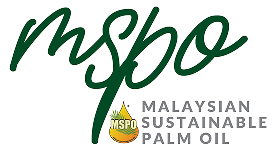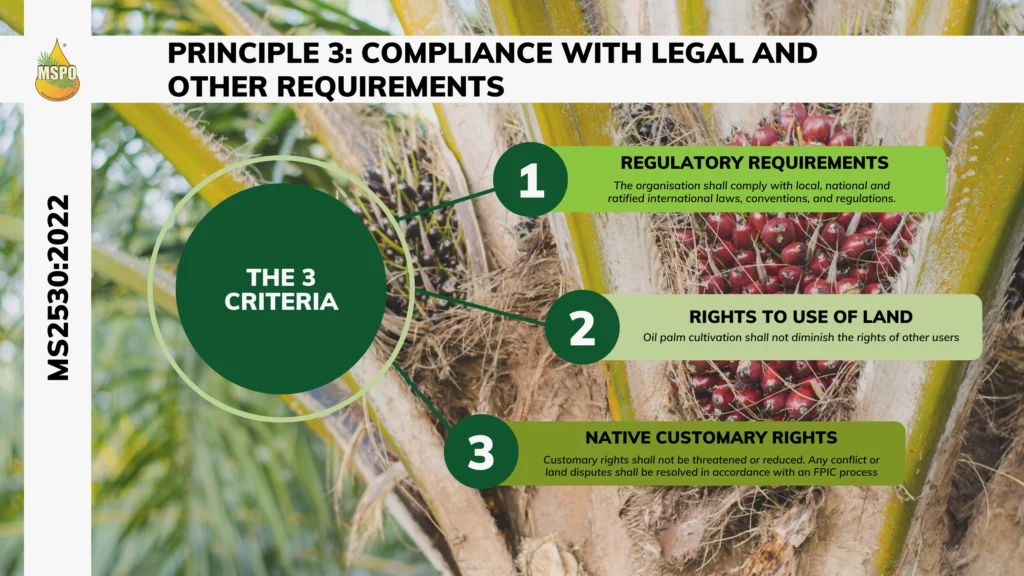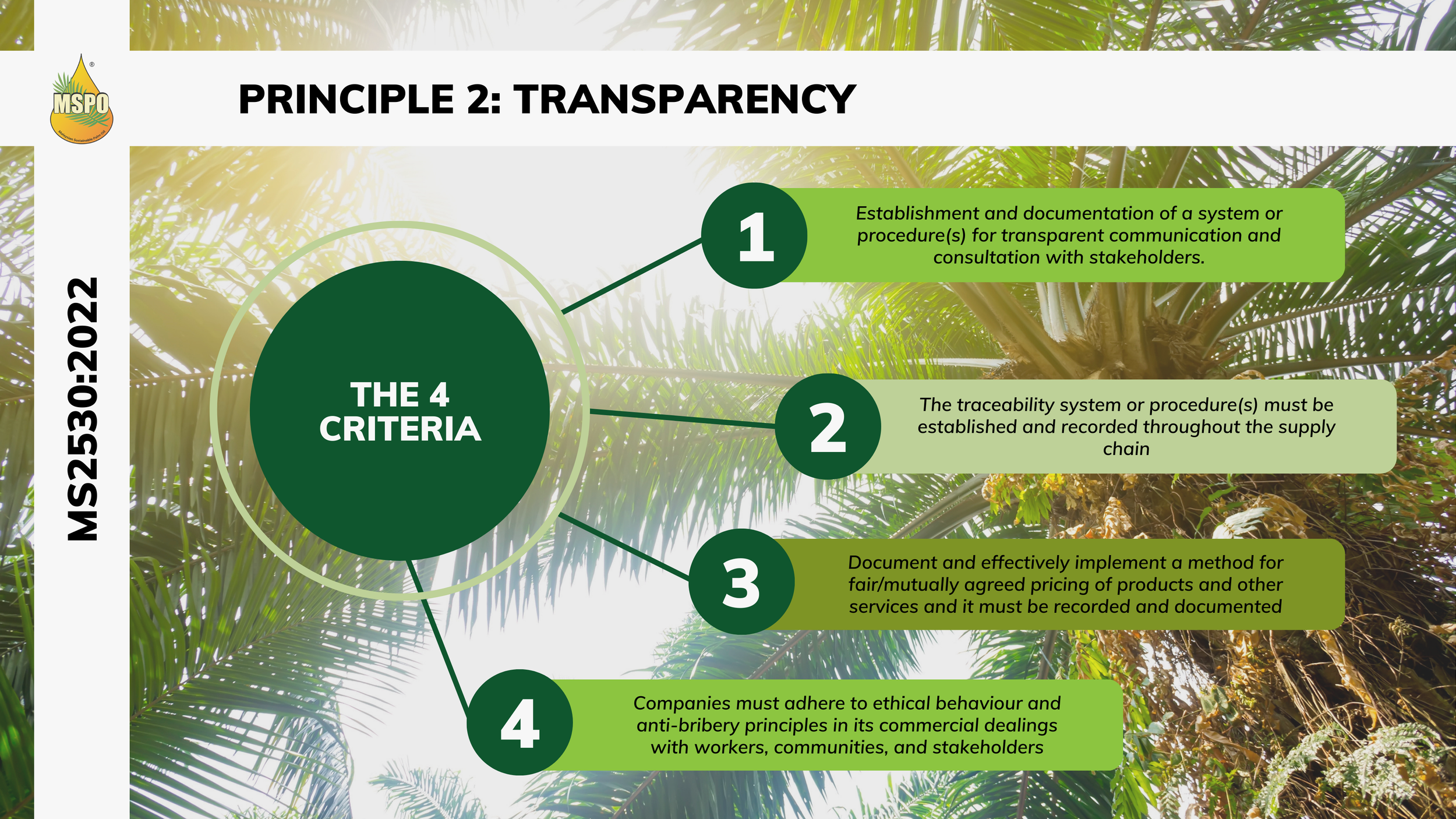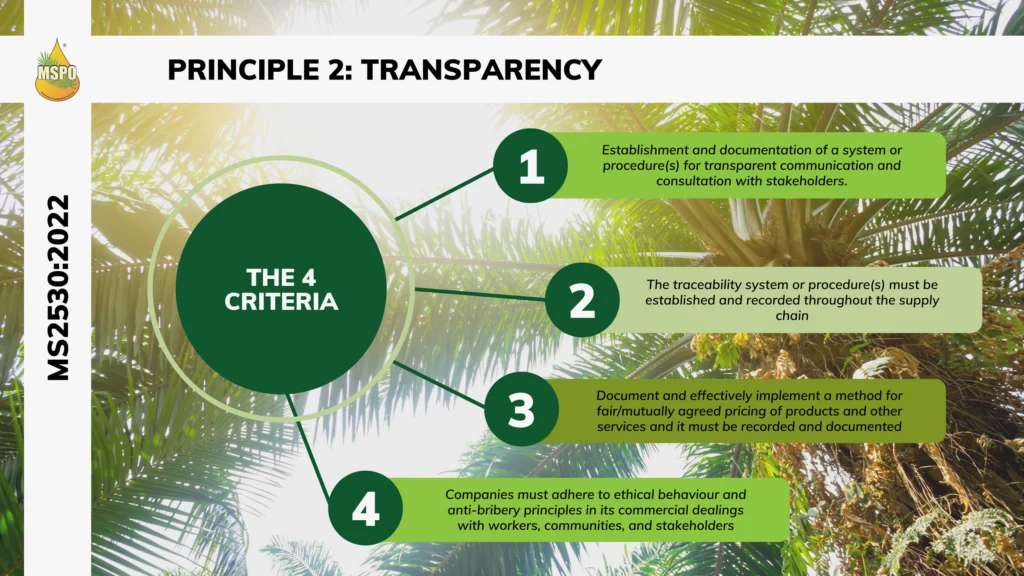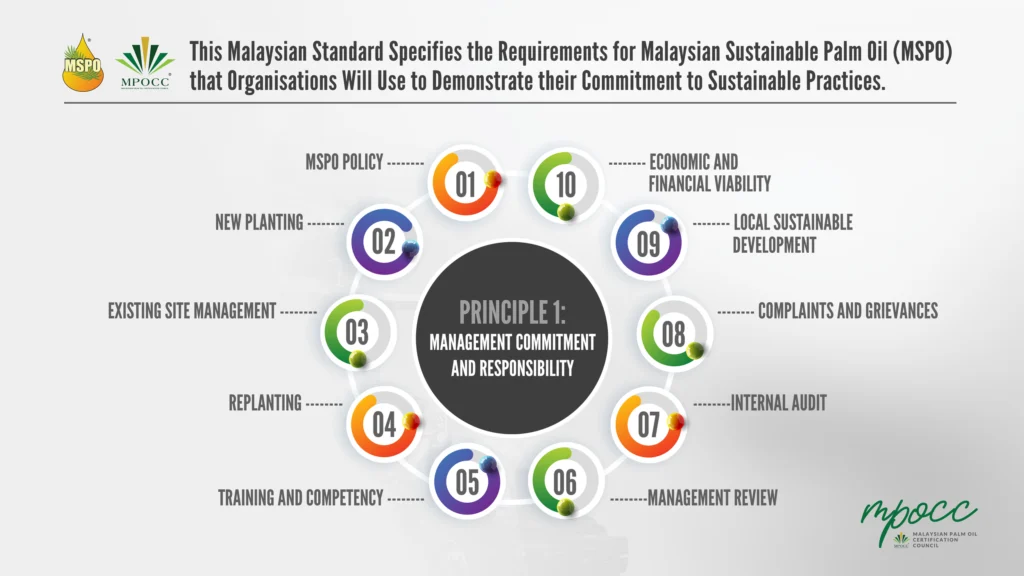Written by Amirul Hadi Noorhadi, MSPO
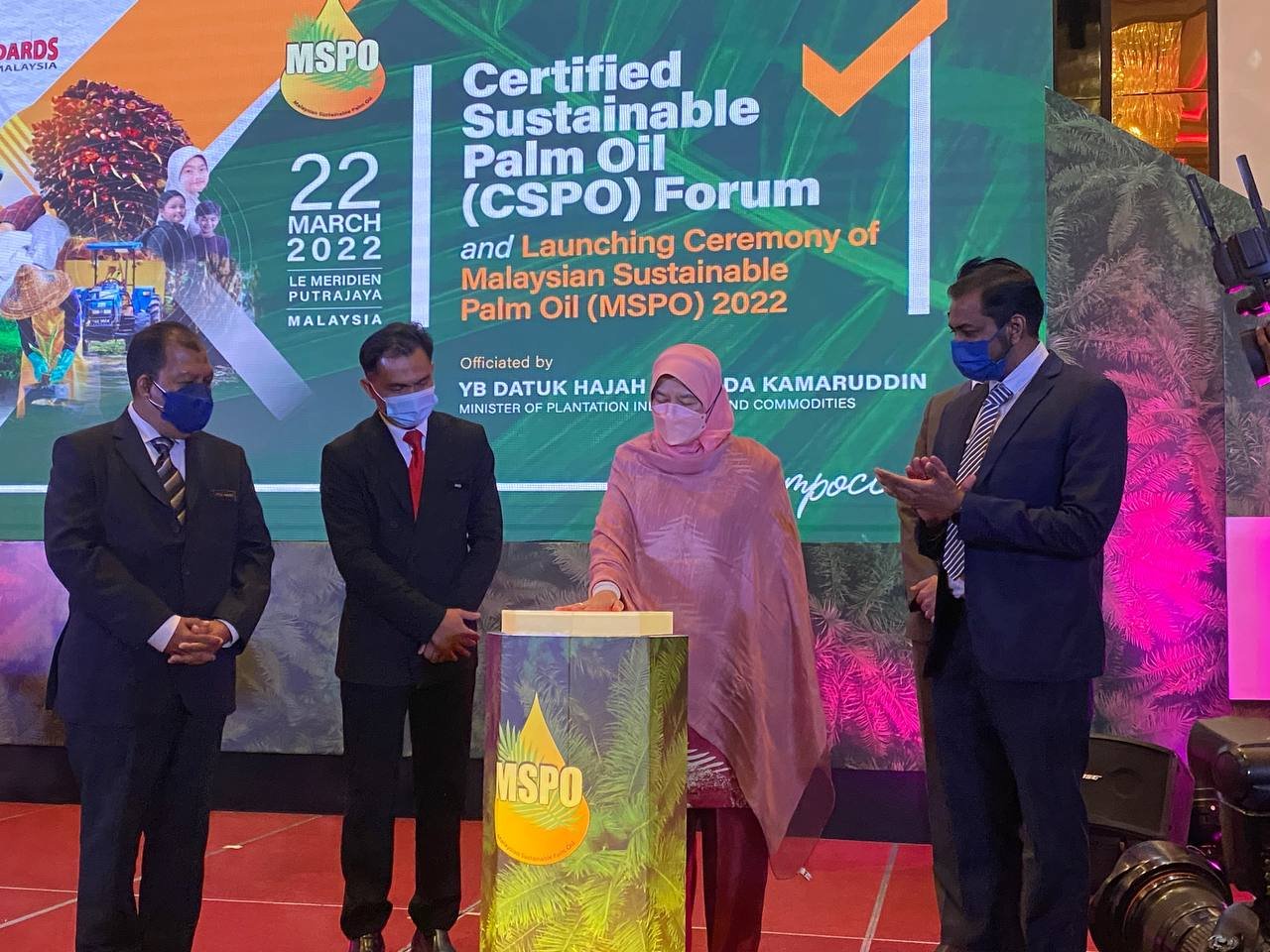
MS2530:2022 is a revised standard of the Malaysian Sustainable Palm Oil (MSPO) scheme that was launched on 22 March 2022 (Tuesday) by our Ministry of Plantation Industries and Commodities, YB Datuk Hajah Zuraida Kamaruddin. The MSPO certification is required in Malaysia to ensure that Malaysian palm oil products are sustainable and accepted in the global market. The standards contain five (5) Principles. This article will provide an overview of the third principle: Compliance with legal and other requirements.
Each principle will have a number of criteria and indicators to support the principles and as the indicator to comply with the requirements. Therefore, Principle 3 contains 3 criteria and 9 indicators.
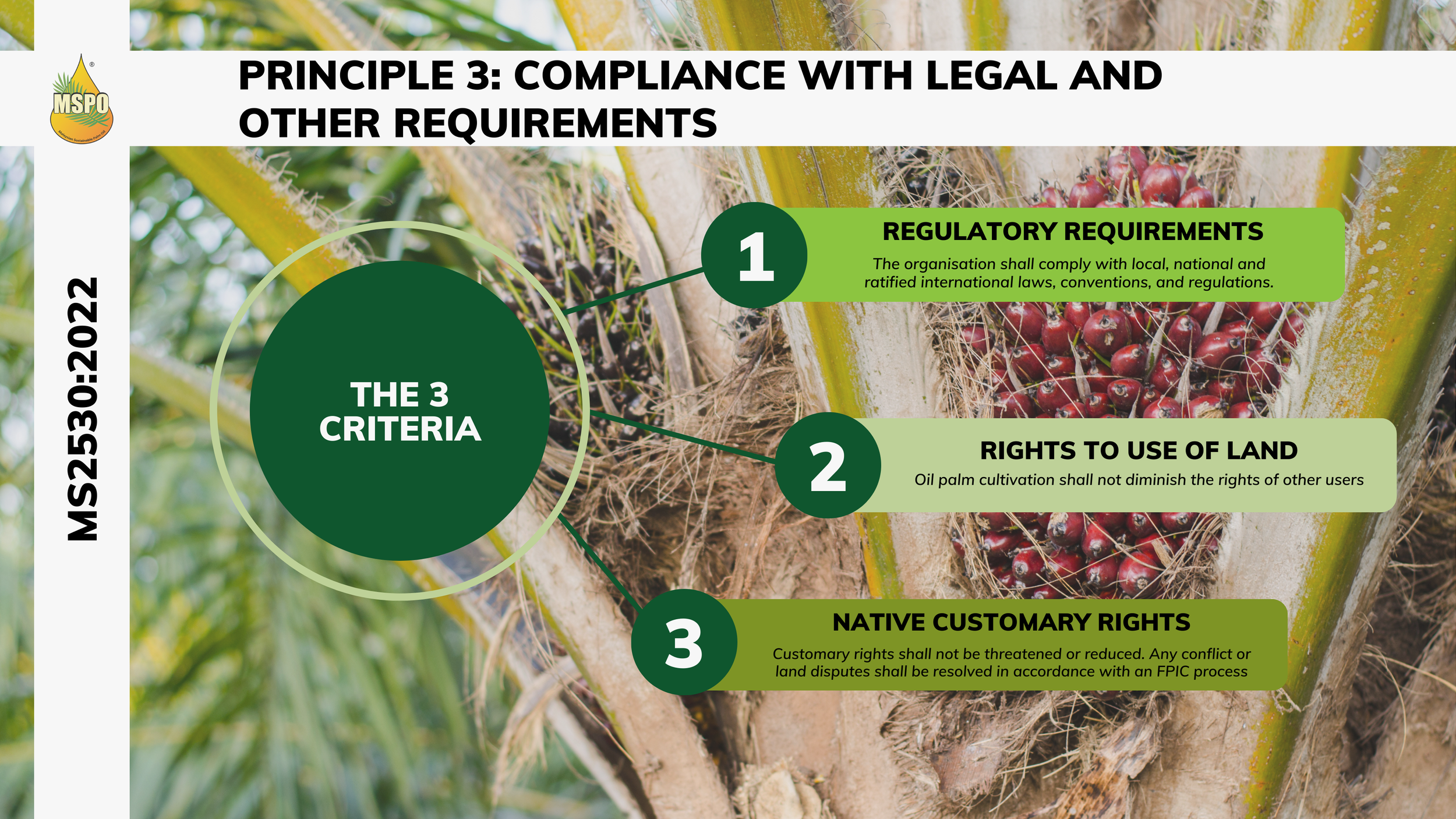
The first criterion is regulatory requirements. As quoted in the standards, “The organisation shall comply with local, national and ratified international laws, conventions, and regulations.”.
This criterion is supported by two (2) indicators:
-
Each organisation needs to identify any applicable legal requirements that are related to its operations and ensure that the legal requirements are always up to date.
-
Compliance of the company with the identified laws that are required to follow, including local, state, national, and ratified international laws, conventions, and regulations, which need to be monitored by an appointed person by the company.
The second criteria are about rights to use of land. As quoted by MS2530:2022, “Oil palm cultivation shall not diminish the rights of other users”. This criterion consists of four (4) indicators:
-
Mainly requires any organisation to ensure that oil palm cultivation activities do not diminish the rights of other users to land.
-
The organisation needs proof of ownership or rights to use the land, such as land title, lease, or joint agreement with the indigenous peoples and history of land tenure, if available. These required documents shall be made available if requested by any relevant stakeholders.
-
Documented proof when there are any disputes on the land title and fair compensation which are agreed with the owners or occupants through Free, Prior, and Informed Consent (FPIC) and need to be made available whenever requested by any relevant stakeholders.
-
All legal perimeter boundary markers shall be clearly demarcated and visibly maintained on the ground whenever applicable.
The third criterion
is the native customary rights (NCR). As quoted in the standards, “Customary rights shall not be threatened or reduced. Any conflict or land disputes shall be resolved in accordance with an FPIC process”. This criterion consists of 3 (three) indicators:
-
The company shall ensure any land that is subjected to customary rights, is understood on their rights and is not being threatened or reduced.
-
Any NCR lands need to map on an appropriate scale that is developed through a participatory process and shall be made available to the affected rights holders and any relevant stakeholders.
-
Any negotiations and FPIC implementation that is made between the company and affected rights holder, need to be recorded and copies of the documents need to be made available to them and any relevant stakeholders.
In conclusion, Principle 3 mainly involves the compliance of the company with identifying and following the legal requirements, either local or international, the entitlement of using the land, and acknowledging the NCR land rights. Please be reminded that this article only covers the gist of Principle 3 which is part of MS2530:2022 and is not appropriate to be used as a reference for any audit on the MSPO scheme.
